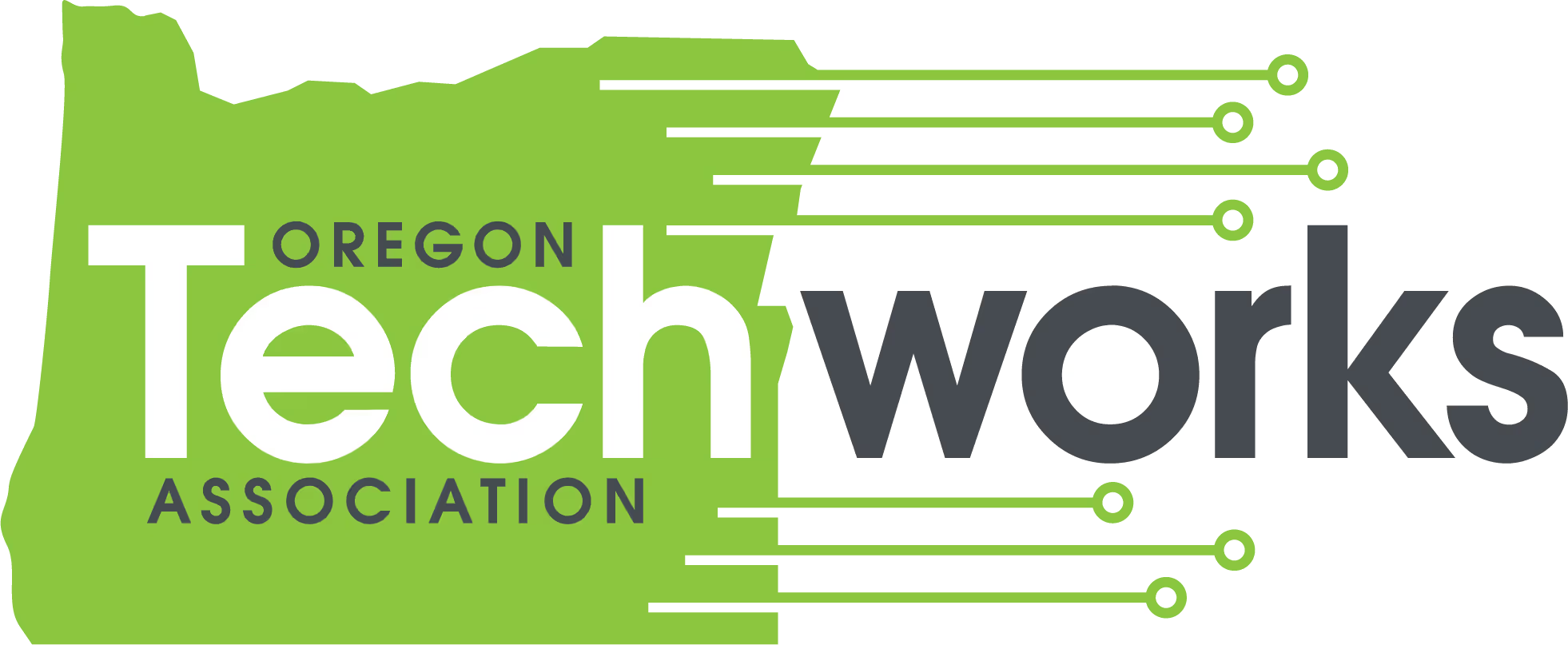Imagine a world where human resources (HR) teams can seamlessly recruit top talent, provide personalized career paths, and improve employee engagement with just a few clicks. This world is no longer a distant dream but a reality as artificial intelligence (AI), automation, and machine learning transform the HR landscape. In this post, we'll explore the exciting ways AI for HR revolutionizes the industry, from streamlining recruitment to enhancing performance management and talent development.
Let's take a deep dive into the potential of AI in HR, the challenges of data privacy and compliance, and highlight how organizations can maximize business value with AI-driven HR management.
Short Summary - TL;DR
- AI is revolutionizing HR departments by automating tedious tasks, enhancing decision-making processes, and providing valuable insights.
- Organizations use AI systems to improve employee engagement, performance management, and training while navigating data privacy regulations.
- AI enables organizations to streamline time-consuming tasks and make more informed decisions through data-driven decision-making for maximum business value.
The AI Revolution in HR: Key Applications and Benefits

The rapid advancement of AI and machine learning has ushered in a new era for human resources. HR departments worldwide are leveraging these cutting-edge technologies to automate time-consuming tasks, enhance decision-making processes, and create a more efficient and productive work environment.
As we explore AI's critical applications and benefits in HR, it becomes evident that AI is not just a passing trend but something that will transform the industry for years. By adopting AI systems, HR departments can streamline their operations, minimize biases, and gain valuable insights to make more informed decisions, ultimately maximizing their business value.
Recruitment Automation
One of the most significant ways AI transforms HR is through recruitment automation. By harnessing the power of AI, HR teams can now efficiently assess resumes and match them with job descriptions, saving valuable time and resources in the hiring process. Algorithms can analyze resumes, identify the most qualified candidates, and provide data-driven insights to help recruiters make more informed hiring decisions. These time-saving processes streamline the recruitment process and reduce human error and biases, resulting in a more diverse and inclusive workforce.
Examples of AI in recruitment include tools like Workable, which uses AI to parse resumes and generate a list of ideal candidates from LinkedIn and other online resources. Other AI-based solutions, such as ChatGPT and PandoLogic, further enhance the recruitment process by creating perfect candidate profiles and generating interview questions. These innovations are revolutionizing how HR professionals approach talent acquisition, ultimately leading to more efficient and effective hiring decisions.
Enhancing Performance Management
Performance management is another area where AI is making a significant impact. By utilizing AI-based performance management systems, organizations can reduce human error, provide data-driven feedback, and counteract biases in the evaluation process. These systems can track and analyze employee data throughout the year, offering comprehensive performance reports that showcase individual strengths, pinpoint areas for improvement, and track progress over time.
The benefits of AI in performance management extend beyond simple evaluation. AI-powered systems can offer insight into employee performance, allowing managers to provide timely and constructive feedback. This real-time feedback not only helps employees enhance their skills but also leads to higher job satisfaction and engagement levels, ultimately benefiting the organization.
Streamlining Onboarding and Offboarding
The onboarding and offboarding processes are crucial to any organization, as they set the tone for an employee's experience and help ensure a smooth transition. AI is increasingly important in streamlining these processes by automating tasks such as form completion, policy introduction, and initial training sessions for new employees. These processes save time and resources and create a more personalized and engaging onboarding experience for new hires.
Similarly, AI can efficiently manage offboarding tasks, such as exit surveys, return of company property, and other administrative duties. By automating these tasks, HR teams can focus on maintaining solid relationships with departing employees and gaining valuable insights from their feedback.
Ultimately, AI-driven onboarding and offboarding processes improve efficiency, resource optimization, and better employee experiences throughout their tenure.
Machine Learning's Impact on Talent Development and Training

In addition to revolutionizing recruitment and performance management, AI is changing the talent development and training landscape. Machine learning algorithms can identify skill gaps and create personalized career paths for employees, helping them develop their skills and reach their goals. By harnessing the power of AI, organizations can tailor their learning and development programs to address the unique needs of their employees, ultimately leading to a more skilled and satisfied workforce.
Research indicates that 62% of tech workers are primarily motivated by learning and development opportunities. With AI-driven talent development and training, organizations can capitalize on this motivation, creating a more engaged and productive workforce.
By leveraging machine learning in HR, companies can address current skill gaps and better prepare for future challenges in an ever-changing business landscape.
Skill Gap Analysis
AI-based skill gap analysis is a powerful tool for identifying the skills that employees need to acquire to fulfill their job roles' requirements. By analyzing employee performance data, AI can help organizations pinpoint areas where their workforce needs to develop, enabling them to create tailored training programs that address these gaps. The data improves employee performance and aids in strategic workforce planning and recruitment efforts.
With AI-driven skill gap analysis, organizations can make more informed decisions about their employee's career development and ensure that their workforce is well-equipped to meet the challenges of the modern business world. By investing in AI-based skill gap analysis, companies can foster a culture of continuous learning and development, leading to a more skilled and agile workforce.
Personalized Career Pathing
Personalized career pathing is another area where AI is making a significant impact. AI can create tailored career paths and employee growth opportunities by utilizing data and analytics. This data helps employees recognize their strengths and weaknesses and offers a straightforward approach to career development, resulting in increased job satisfaction and engagement levels.
The benefits of AI-driven personalized career pathing extend beyond individual employees. By offering tailored growth opportunities, organizations can better align their workforce with their strategic goals, improving productivity and overall business performance.
In an increasingly competitive business environment, AI-based personalized career pathing can unlock an organization's full potential.
Improving Employee Engagement with AI Systems

Employee engagement is a critical factor in the success of any organization. Engaged employees are more productive, more likely to stay with their employer, and more likely to recommend their employer to others.
AI systems can play a crucial role in improving employee engagement by providing real-time feedback and identifying areas of improvement. By leveraging AI to monitor employee performance, behavior, and engagement, HR teams can gain valuable insights and proactively address any issues before they escalate.
The feedback helps organizations foster a more engaged and satisfied workforce and improves overall business performance.
Real-Time Feedback
AI-based real-time feedback is a powerful tool for enhancing employee engagement. By providing immediate and constructive feedback, managers can help employees refine their skills and achieve their objectives. These feedback tools lead to better job performance and contribute to higher levels of satisfaction and engagement among employees.
These insights into employee performance help them make informed decisions about workforce development and resource allocation.
Identifying Areas of Improvement
AI systems can also help identify areas of improvement for employees, enabling organizations to provide targeted support and coaching. By pinpointing areas where employees are struggling, AI can help managers and HR professionals develop tailored training programs and interventions to address these issues.
AI can help identify areas for improvement, enhance performance, and boost employee satisfaction. Instilling a continuous learning and growth culture results in higher job satisfaction and engagement.
Navigating Data Privacy and Compliance Challenges

While the benefits of AI-driven HR management are undeniable, organizations must navigate the challenges of data privacy and compliance when implementing these technologies. As AI systems process large amounts of sensitive employee data, ensuring the security and confidentiality of this information is paramount.
In the following sections, we will explore the best practices for data security and compliance monitoring, which are essential for organizations looking to harness the power of AI in their HR processes. By adhering to these guidelines, companies can enjoy the benefits of AI-driven HR management while mitigating the risks associated with data privacy and compliance.
Data Security Best Practices
Ensuring employee data security is a top priority for organizations implementing AI-driven HR management systems. To protect sensitive information, companies should employ encryption, secure authentication methods, and restrict access to sensitive data. Additionally, it is imperative to keep systems regularly updated and monitored for any potential security threats.
By adhering to these data security best practices, organizations can ensure their AI systems are secure and compliant with data privacy regulations. These preventative measures protect employees' personal information and help build trust in the organization and its AI-driven HR processes.
Compliance Monitoring
Compliance monitoring is an essential aspect of AI-driven HR management. As AI systems process vast amounts of sensitive employee data, organizations must verify adherence to applicable laws and regulations, including data privacy and security policies. Keeping abreast of regulatory changes and implementing necessary adjustments to AI systems is crucial for maintaining compliance.
By investing in AI-based compliance monitoring, organizations can ensure the security and privacy of employee data and stay ahead of the curve in the rapidly evolving landscape of data privacy regulations. This proactive approach to compliance can help organizations avoid costly penalties and reputational damage, ultimately contributing to long-term success.
Maximizing Business Value with AI-Driven HR Management

AI-driven HR management can help organizations maximize business value by streamlining time-consuming tasks and enabling data-driven decision-making. By automating repetitive processes and harnessing the power of AI for decision-making, organizations can improve their HR operations and contribute to overall business success.
The following sections will explore how AI-driven HR management can streamline time-consuming tasks and facilitate data-driven decision-making, ultimately maximizing business value and driving organizational success.
Streamlining Time-Consuming Tasks
One of the primary benefits of AI-driven HR management is the streamlining of time-consuming tasks. By automating manual processes, such as recruitment, performance management, and onboarding, AI systems can significantly reduce the time and resources required for these tasks.
By freeing HR professionals from time-consuming administrative tasks, AI-driven HR management allows them to focus on more strategic initiatives, such as talent development, employee engagement, and workforce planning.
Data-Driven Decision-Making
Data-driven decision-making is another critical advantage of AI-driven HR management. By providing accurate and timely data, AI systems can help organizations make more informed decisions about workforce development, resource allocation, and overall business strategy.
By leveraging AI for data-driven decision-making, organizations can improve their HR processes and align their workforce with strategic goals. As a result, organizations can more effectively align their human resources with their strategic objectives.
Summary
In conclusion, AI-driven HR management is revolutionizing the field of human resources by automating time-consuming tasks, enhancing performance management, and transforming talent development and training. Organizations can leverage AI systems to improve employee engagement, streamline onboarding and offboarding processes, and navigate data privacy and compliance challenges.
Organizations that embrace AI and machine learning technologies will position themselves to maximize business value and drive success as the future of HR becomes more intertwined with these advancements. As we move forward into this brave new world of AI-driven HR management, now is the time for organizations to seize the opportunity and harness the power of AI to transform their HR operations and achieve unparalleled success.
Frequently Asked Questions
How can AI be used in HR?
AI in HR can offer organizations better and faster recruitment processes and decision-making. AI can identify the best candidate for a job and detect potential biases in recruitment decisions.
AI can be used in HR to improve employee performance and experience. It can assist in processing data quickly and efficiently, streamlining hiring processes, and offering personalized feedback to employees. Additionally, AI can help inform and direct HR policy-making by providing insights based on employee behavior and engagement levels.
Can AI replace HR?
The short answer is no. AI technology has indeed come a long way, and it can greatly increase the efficiency of HR departments and streamline mundane tasks. However, AI can only partially replace the human touch when managing people and making complex decisions.
How is AI used in HR analytics?
AI provides HR professionals with the ability to understand better employee behavior and performance, as well as recognize trends that could lead to improvements in workforce management. It can also help identify training and development opportunities, anticipate turnover risks, and ensure compliance with labor laws and regulations.
Ultimately, AI helps organizations make better decisions about their people, leading to a more productive and engaged workforce.
How does AI help HR recruitment?
AI helps HR recruitment by providing efficient and accurate solutions for streamlining the recruitment process. AI automates mundane and repetitive tasks, allowing HR teams to make data-driven decisions faster and with less bias.
Additionally, AI can analyze candidate data to identify qualified candidates and provide a better experience throughout the hiring process.
Ready to become a member?
Reach out today to discover all the ways Techworks can help your tech company thrive.


